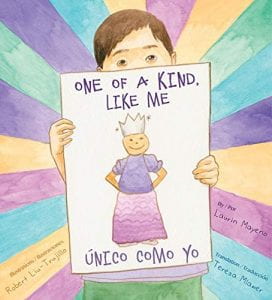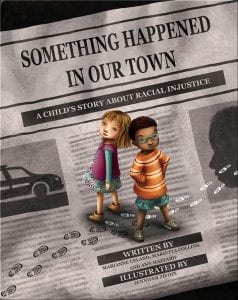Topic: Censorship
Banned Books Week is an annual event primarily in the United States which celebrates the freedom to read. This event was started in 1982 when there was a surge in a number of books being challenges within schools, bookstores, and libraries. Its goal is to highlight and bring attention to the harms of censorship and each year they compile a list of the most challenged books (Banned Books Week, 2022). Throughout the week they hold events that opens up the conversation around censorship with authors and illustrators who have been affected by these bans. Last year a webinar was held with Marianne Celano, Marietta Collins, and Ann Hazzard, the authors of “Something Happened in Our Town: A Child’s Story About Racial Injustice,” and Laurin Mayeno and Robert Trujillo, the author and artist of “One of a Kind, Like Me” (Banned Books Week, 2021).


Each of these picture books had been challenged and banned in different state of America as specific school boards thought that they would be detrimental to library collections. Something Happened in Our Town was thought to promote anti police ideals and One of a Kind, Like Me would confuse children’s gender identity. All of the authors and illustrators of the books were drawing from personal experiences and the books were written in a way that would be accessible to children, even though the content was dealing with important themes. It was interesting to listen to them speak about how they found out about the bans on their works and why they think books addressing these issues are important.
Like the discussion around diversity in children’s books it is vital that children and young adults are exposed to these issues in a respectful and accessible way. Marianne, Marietta and Ann highlighted that children are aware of the world around them and not naïve to the big issues, while Laurin explained that books can help children expand their knowledge of the world around them. When these bans happen, it has a widespread impact on the development of children and young adults. Intellectual freedom is the ability to learn from experiences in books and for children to see a reflection of themselves and in turn this allows them to grow into an informed citizen of the world (Pekoll, 2022, p.33).
After watching the webinar, I was interested in the Australian standard and how public libraries would deal with this issue. For libraries in New South Wales, the State Library has a guideline that deals with the topic of censorship which was framed using varying statements on free access to information and intellectual freedom. Public libraries have a duty to be an unbiased source of information and ideas and provide free and equitable access to the community (State Library of New South Wales, 2022). If items are challenged by members of the community, then it is important that the library has a well-developed collection development policy in which has concessions for these instances. For librarians’ censorship is an important issue that will always be present within any library setting. I feel very lucky that within Australia the way books are viewed is very differently to what happens within the US but as an information professional it is important, we know what is going on around the world.
Word Count: 548
References
Banned Books Week. (2021). Censorship of Children’s Books [Video]. YouTube. https://www.youtube.com/watch?v=ZGw6subDAbM
Banned Books Week. (2022). About. https://bannedbooksweek.org/about/
Pekoll, K. (2020). Managing censorship challenges beyond books. Knowledge Quest, 49(1), 28-33.
State Library of New South Wales. (2022). Censorship. https://www.sl.nsw.gov.au/public-library-services/censorship